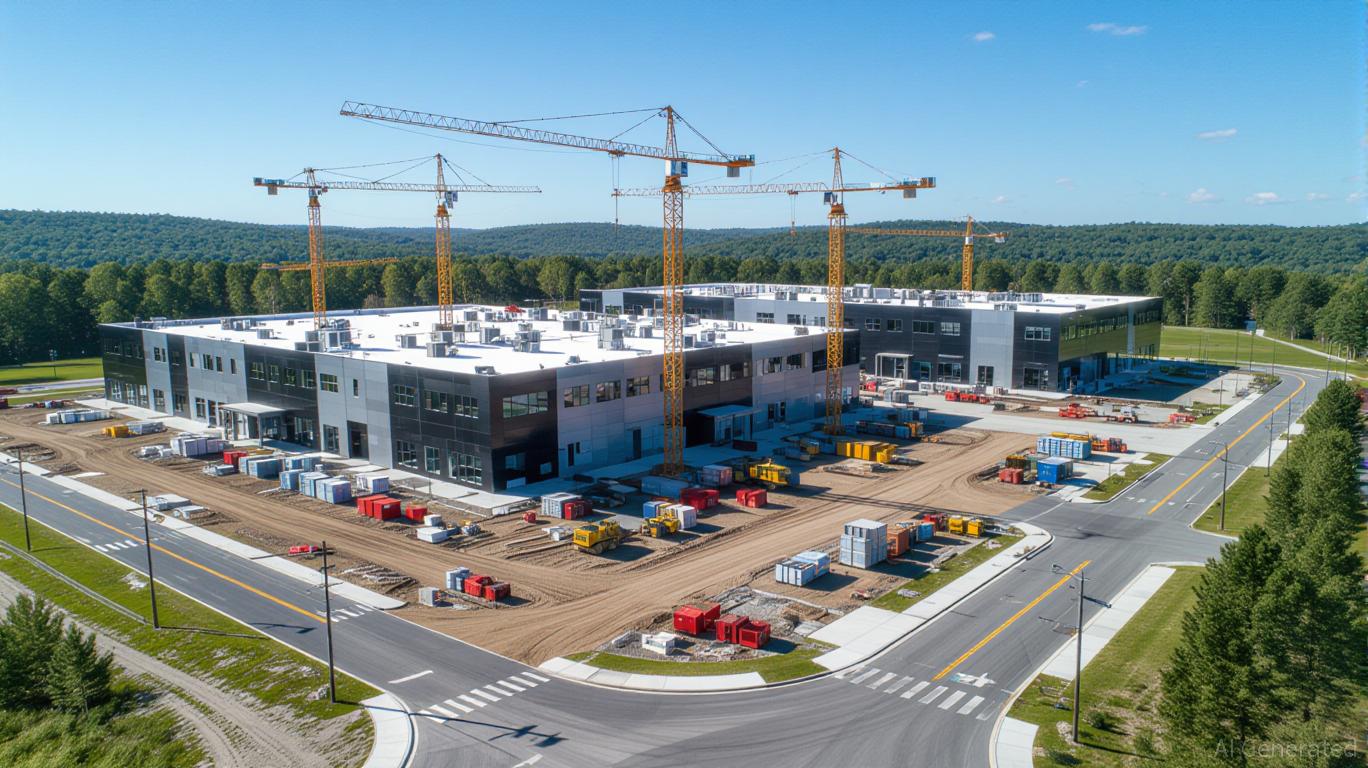Security Concerns Hinder Nigeria's 5G Aspirations
- Nigeria's 5G coverage remains at 3% three years post-launch, lagging behind regional peers and global trends like MENA's projected 48% adoption by 2030. - Security crises, including 300+ schoolkid kidnappings, have diverted government resources from infrastructure, delaying 5G rollout amid economic instability. - Despite 15.7% annual fintech growth, Nigeria's embedded finance sector faces innovation limits without widespread 5G to enable real-time data processing. - Contrasting South Africa's 20% online
Three years after the introduction of 5G in Nigeria, coverage remains limited to just 3% of the country—significantly trailing behind other nations in the region and hampering Nigeria’s digital transformation goals. While demand for advanced connectivity is rising across Africa—

The slow pace stands in stark contrast to the Middle East and North Africa (MENA), where
Authorities have yet to clarify the reasons behind the sluggish deployment, but
Security concerns have only made matters worse.
Meanwhile, South Africa—a digital frontrunner in the region—is considering
This scenario highlights a wider divide in Africa’s digital progress: while
Disclaimer: The content of this article solely reflects the author's opinion and does not represent the platform in any capacity. This article is not intended to serve as a reference for making investment decisions.
You may also like
Crypto Surges As Fed Eyes Rate Cut In December

Strategy unveils a new anti-panic weapon against the bitcoin crisis

dYdX’s performance-driven affiliate system establishes a new benchmark for DeFi rewards
- dYdX's v9.4 upgrade introduces a performance-based 50% commission tier, replacing static VIP tiers with dynamic affiliate fees tied to real-time trading volume. - The sliding fee model automatically adjusts commissions (30% base, 50% for top performers) to align affiliate rewards with platform liquidity and growth goals. - Competitors like Bitget and YWO also adopt performance-driven affiliate strategies, reflecting a broader DeFi trend toward merit-based incentives. - dYdX's protocol-level hard-coding o
The Growth of Ready-to-Develop Infrastructure in Upstate New York and Its Influence on Industrial Property
- Upstate NY's industrial real estate is transforming via shovel-ready infrastructure and public-private partnerships, targeting advanced manufacturing and clean energy sectors. - FAST NY's $400M grant program has funded 37 projects since 2022, upgrading 7,700 acres to attract $283M+ in private investments like Chobani's regional operations. - Webster's Xerox campus redevelopment ($9.8M FAST NY grant) exemplifies mixed-use "bluefield" models combining manufacturing with residential zones to create sustaina
